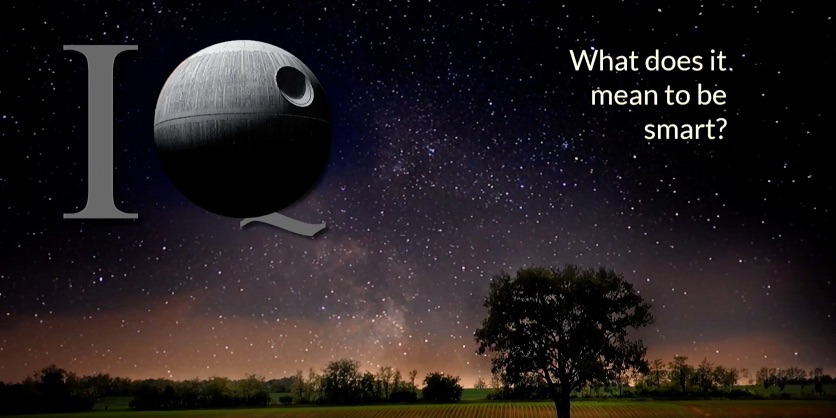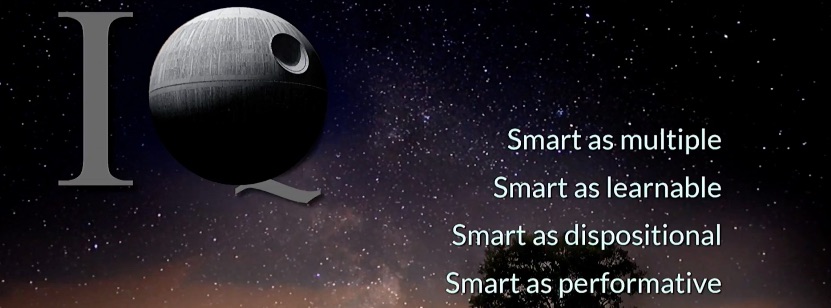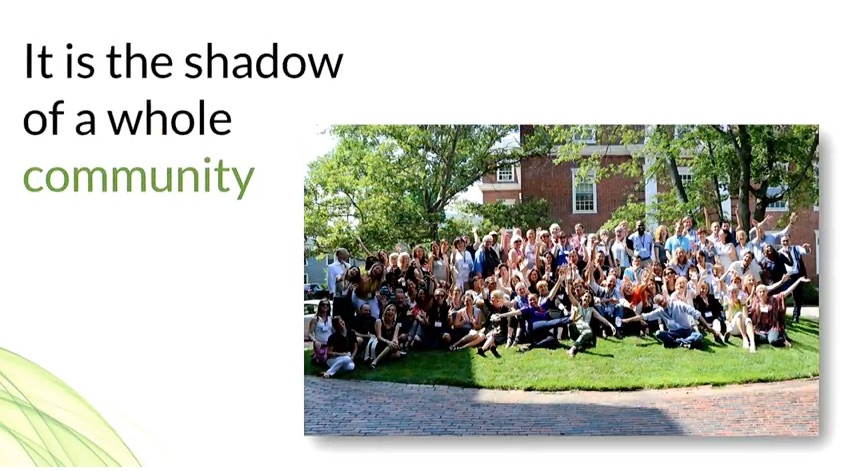This year is the fiftieth birthday of Harvard’s Project Zero, a research project designed to explore the nature of thinking and learning and from this suggest pedagogies which align with what we know about the mind. For its birthday celebration Project Zero shared insights from its five decades of research with presentations from Howard Gardner, David Perkins, Shari Tasman, Steve Seidel and Daniel Wilson. The presentations revealed the changing nature of the work of Project Zero from its early days and focus on arts education to its current position as a research organisation with broad interests across education but with a focus on thinking, understanding and the workings of the mind.
By keeping changes in Mind in mind, we might move beyond replicating classrooms from the 1850s
Daniel Wilson set the tone of the presentations by stating that educators must keep changes in Mind in mind. The implication being that as our understanding of the mind expands our interactions with it through learning and teaching must also evolve and expand; something that Wilson shows has not occurred historically. This has been the work of Project Zero and projects such as Teaching for Understanding and Making Thinking Visible provide teachers and most importantly learners the frameworks required. The great value that Project Zero brings lies in the research basis for its work and the clear connections its researchers make with practices which are applicable in the real world and real classrooms.
Howard Gardner took us back to the early days of education where in the 1850s much of the structure of education was invented and implemented for the first time. Over subsequent years and decades our thinking about the mind changed from behaviourist notions with a strict focus on the visible behaviours which could be manipulated through rewards and punishments, testing of intelligence where what was considered intelligent was what the test tested, towards a science of cognitive psychology and an interest in what might lie behind the behaviours and on to more modern understandings from neuroscience. Beyond the individual social factors for thinking and learning evolved and with each new piece of research our understanding of Mind has expanded and evolved. From its early days of exploring linkages between the arts and the mind to today, Gardner shows how Project Zero has evolved our understanding.
David Perkins in his engaging storytelling style shared with us the story of the Evil Empire of IQ and revealed that contrary to popular belief intelligence is so much more than is revealed by a score on a test. Perkins asked the question "what does it mean to be smart” and his response showed that the errors in the common understanding. He reminded us that the evolving understanding of the mind shows:
- Smart as multiple - we are not all smart in the same way nor are we smart in a singular way. There are the smarts we use when we are being creative and these are not the same as the smarts we use when we are being business minded and these are not the same as the ones we use when being social
- Smart as learnable - that through the development of thinking strategies and the use of scaffolds for our mind we can enhance our smarts
- Smart as dispositional - that much of what we consider as smart are indeed dispositions and that can be developed or enhanced and that the utility of these dispositions requires not only the capacity for the disposition but the desire to deploy it and a sensitivity to its utility in given circumstances all of which can be learned
- Smart as performative - It’s not the knowledge, it’s what you do with the knowledge, It’s not knowing a lot it’s how you think with what you know.
Perkins concluded by urging us to consider the implications for this broader definition of what it means to be smart and what this looks like in the classroom. "Imagine a classroom where what’s central is not repeating what you know or repeating the standard routines, but this further layer of exploration putting that knowledge to work. In Jerome Bruner’s famous phrase “Going beyond the information given” That's what should be our earmark for a really rich generative setting for learning “Going beyond the information given”.
Shari Tishman focused on the work of the Visible Thinking project; "Visibility as a force for learning - a rich area of research Project Zero - two decades and going strong”. Tishman asked "What happens when instruction is designed to help learners externalise; to make visible their thinking to themselves and one another?” With examples from the classroom Tishman showed that by making thinking visible we allow learners and teachers to understand where they are with their thinking, how they got there and to move forward to a deeper understanding. She shared how the use of thinking routines such as “Notice, Know, Wonder” allows for a deep engagement with learning and takes students beyond recall of knowledge, towards understanding.
Steven Seidel urged us to “turn teaching on its head” in response to what we now know about Mind. In his words:
"The radical preconceptions of the minds we have been hearing about and our new understandings of how people learn suggest we probably need a radical reconceptualisation of what it means to teach and indeed I think we do, just as these streams of research and theory have led us to turn our concepts of mind on their head, so to speak, clearly we need to turn teaching on its head as well. "
"To be sure while we have evolved our understanding of the mind in many if not most schools, classrooms and other learning environments, we have not changed our minds about what it means to teach. We may have changed our minds but we haven’t changed our practice so much. If you look in on most classrooms today you’ll see variations on old models of teaching, not radical reconceptualisations of what it means to learn and therefore to teach."
Sadly, as Seidel noted "Paradigms don’t shift until they are ready"
Seidel urged us to see teachers as curators of three core principles at the heart of education; as curators of curiosity, curriculum and culture.
- Teachers as curators of curiosity, both their students and their own - students and teachers as creators of knowledge - Seidel noted that teachers are well placed to develop and extend our understanding of the curation of curiosity.
- Teachers as creators of curriculum - building on what is there but also on what is within the community and what matters to learners. “A different model of a curriculum, one that is long term, often place based, open to taking new directions as it unfolds, aesthetically rich, community connected and oriented to produce products and performances" - not a teacher proofed commercial curriculum or one mandated by government and monitored by high stakes testing.
- Teachers as creators of Culture - Not as transmitters of the culture of the dominant society. but to "think of things as if they could be otherwise, to use our imaginations in service of our ethical sensibility and to recast our works as teachers toward the creation of just, equitable and democratic classrooms and school cultures”
Learning as . . . according to Steven Seidel
The work of Project Zero is ongoing and increasingly global. In the words of Howard Gardner, it is an institution that is not the lengthened shadow of one man as imagined by Ralph Waldo Emerson but is the shadow of a whole community. It is a community dedicated to the betterment of education for all, and one that seeks to understand and respond to debates around the purposes and processes of education with sound research and respect for the complex nature of the subject.
As a teacher who has benefited from the thinking of Project Zero I thank all involved and wish you a happy birthday. We will watch with anticipation to see what comes next.







